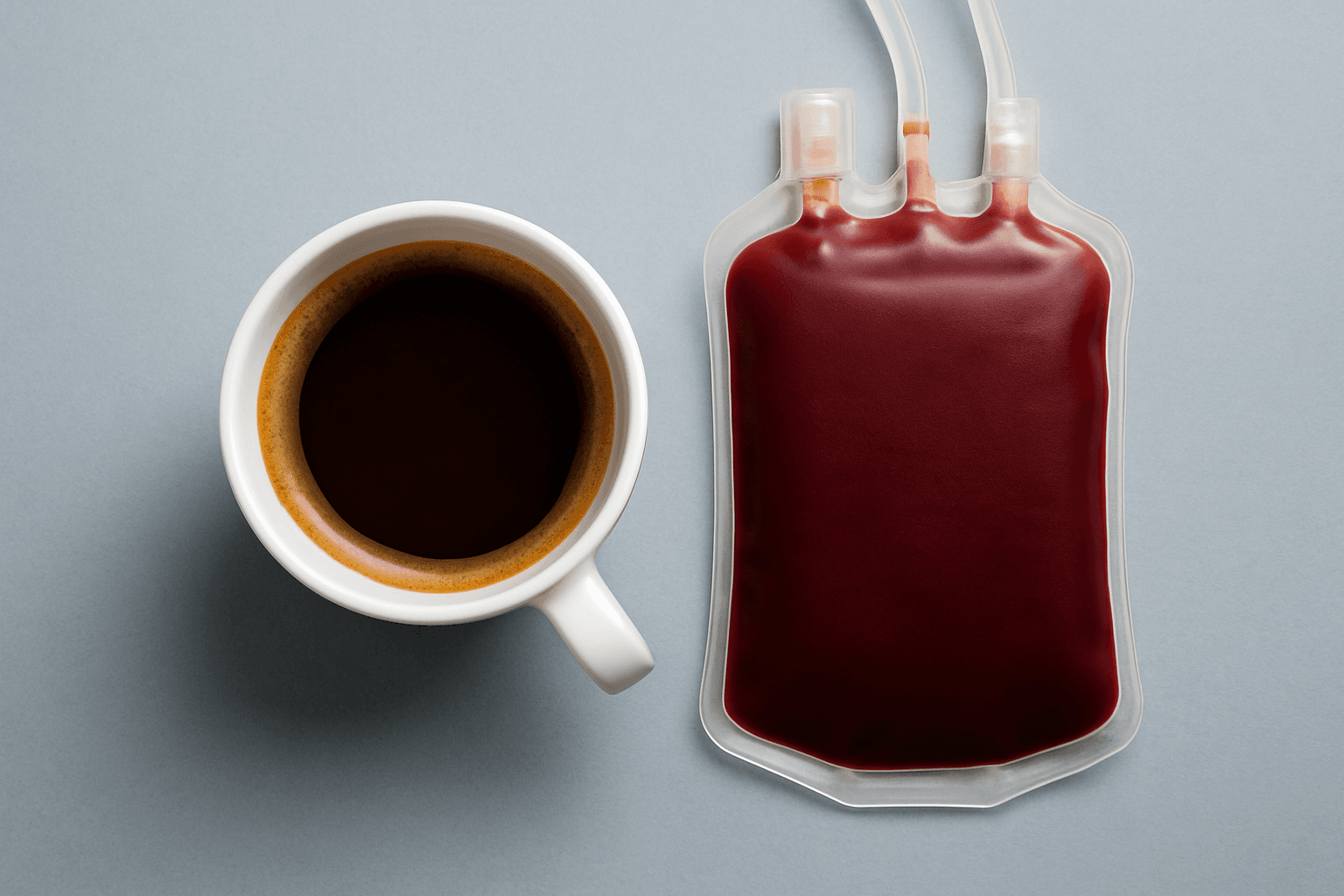Dubai, September 8, 2025 (Qahwa World) – A groundbreaking study published in Haematologica has revealed that caffeine, the world’s most widely consumed stimulant, can significantly reduce the quality of stored donor blood, potentially limiting the benefits of transfusions for patients.
The research, based on data from more than 13,000 blood donors, examined caffeine levels and their impact on red blood cell function during storage. The results showed that blood taken from donors with high caffeine exposure was more fragile and less effective after transfusion. The cells demonstrated depleted energy reserves such as adenosine triphosphate, reduced levels of 2,3-bisphosphoglycerate, and increased oxidative stress markers, making them more prone to breakdown.
The study further revealed that not all donors were affected equally. Negative effects were especially pronounced among individuals carrying variants of the ADORA2b gene, which regulates how red blood cells adapt to low oxygen. When caffeine blocks this receptor, stored blood deteriorates faster, resulting in weaker clinical outcomes for transfusion recipients.
Laboratory experiments confirmed that caffeine’s harm operates on two fronts: first, by blocking ADORA2b signaling, and second, by directly inhibiting glucose-6-phosphate dehydrogenase, a key enzyme responsible for red cell antioxidant defenses. This dual mechanism leaves cells more vulnerable to oxidative stress and shortens their survival after transfusion.
The health implications are significant. With more than twelve million units of blood transfused annually in the United States alone, even small reductions in blood quality can have widespread consequences. Encouragingly, caffeine is a modifiable factor. Because of its short biological half-life, abstaining from coffee or caffeinated drinks for even a single day before donation may improve blood quality. Some European countries already advise donors to avoid caffeine, while in the United States and Italy it is sometimes encouraged to help raise blood pressure temporarily, easing the donation process.
Researchers, led by Professor Angelo D’Alessandro of the University of Colorado, emphasize that these findings highlight the need for a more personalized approach to transfusion medicine. In addition to blood type, factors such as lifestyle and genetic background should be considered to ensure the highest quality units are directed to patients most at risk, such as infants or individuals with severe anemia.
The paradox is striking: the same mechanisms that make caffeine harmful for stored blood may explain its appeal to athletes. A modest increase in oxidative stress can stimulate adaptation in the body, improving endurance. But inside blood banks, this effect translates into weaker units and reduced potential to save lives.

